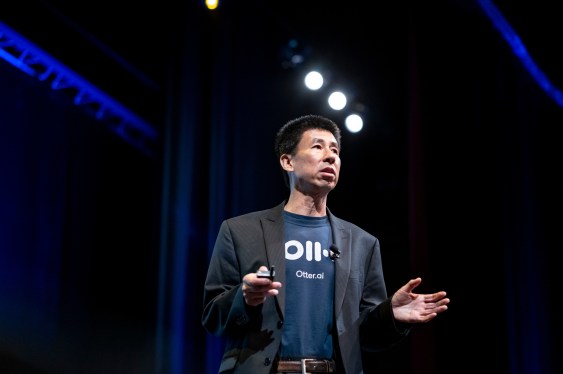Otter.ai CEO Sam Liang is not satisfied with the company being viewed as just a meeting notetaker. He wants Otter.ai to become a go-to source for enterprises. A new batch of products released Tuesday is the first step in that evolution.
The Silicon Valley-based AI meeting assistant startup released a new suite of tools for enterprises. These tools are designed to better incorporate data from meetings into other workflows by funneling that information to a central knowledge base. The aim is to grow Otter’s business by helping companies get more out of the meetings they record.
Otter’s new product suite includes an API that allows users to build custom integrations with platforms like Jira and HubSpot. It also includes an MCP server, which connects users’ Otter data to external AI models, and a new AI agent that can search a company’s meeting notes or presentations. Liang said this is the next phase of Otter’s life. He stated they are evolving from a meeting notetaker to a corporate meeting knowledge base. He described it as a system record for conversations that can help corporations scale their growth and drive measurable business value.
When Otter was founded in 2016, there were just a handful of meeting transcription companies. This is a far leap from today. The AI boom that kicked off in 2022 fueled a surge in new startups. Liang argues this transition puts Otter into a separate division than its former peers.
In Liang’s opinion, meetings are where the majority of company knowledge is stored, whether that is notes from a customer sales call or discussions around a marketing strategy. But without a centralized place for these meeting notes, that information can only help a company so much. He said that a lot of inefficiency happens because of information silos. One team does not know what the other team is doing, and plans can change without everyone being informed. The idea is to create a permission system so that most nonconfidential information is shared as broadly as possible.
Not every meeting with Otter will be directly added to this company-wide knowledge base. Users can choose to restrict meeting note access for recordings that deal with sensitive information. Employee and information privacy remains a concern despite access controls. Even if a meeting is around a neutral topic, Otter transcriptions pick up the small talk and chatter that happens before and after meetings. This could contain gossip or information meant for only certain participants to hear.
Otter is also the subject of an August class-action lawsuit that claims the company was recording private conversations without user consent and using that information to train its transcription services. Liang said that while he cannot comment on the lawsuit specifically, this is not an issue specific to Otter. He believes that when looking at the bigger picture, more access to information is better than not. He stated that if they accuse his company, then they could accuse everyone else doing meeting notes. Liang said his view is that they are on the right side of history, building a new AI revolution. He concluded that if you want AI to help, you need to put AI in the meetings.

